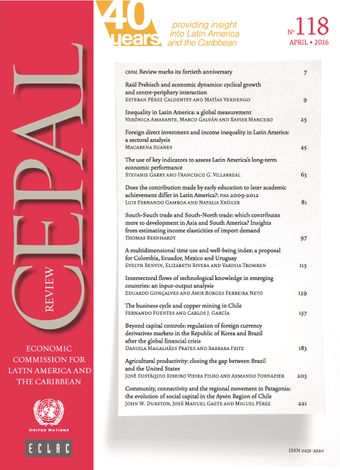-
A multidimensional time use and well-being index: A proposal for Colombia, Ecuador, Mexico and Uruguay
- Source: CEPAL Review, Volume 2016, Issue 118, Sep 2016, p. 115 - 137
- Spanish
-
- 23 Sep 2016
Abstract
This article aims to develop a multidimensional index by integrating time use and well-being dimensions and proposes a conceptual framework based on the assets and the human capabilities approaches. The components of the index identify deprivations, which are understood to be barriers to the development of human capabilities and social justice. The optimum objective is to look beyond monetary metrics when identifying indicators that can better explain how the population, rather than the economy, is progressing and being guided by the principles of distributive justice. This study implements the Alkire-Foster identification and aggregation method (2007 and 2013) and shows the results for four Latin American countries (Colombia, Ecuador, Mexico and Uruguay), using time-use surveys and distinguishing by household type.
© United Nations





